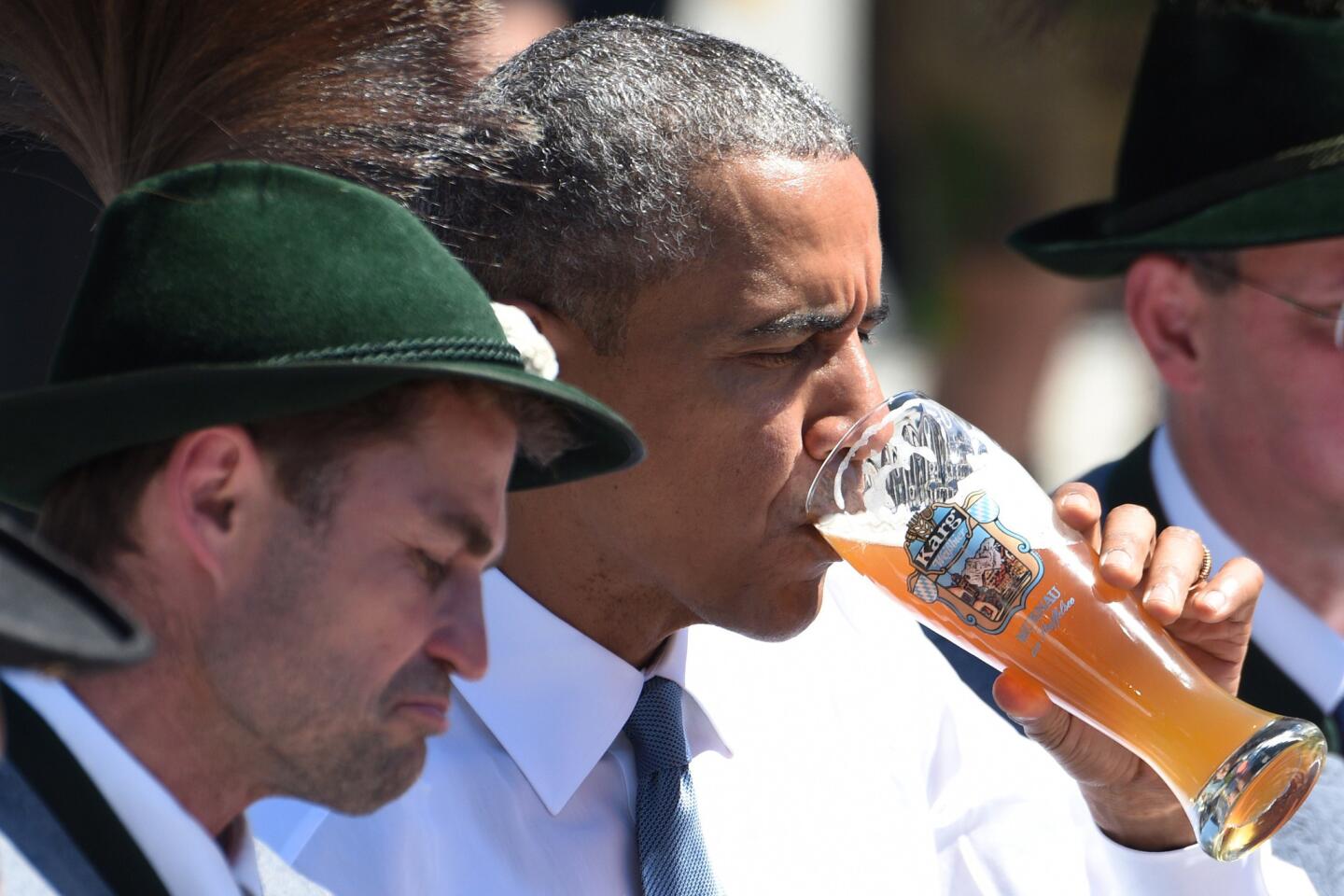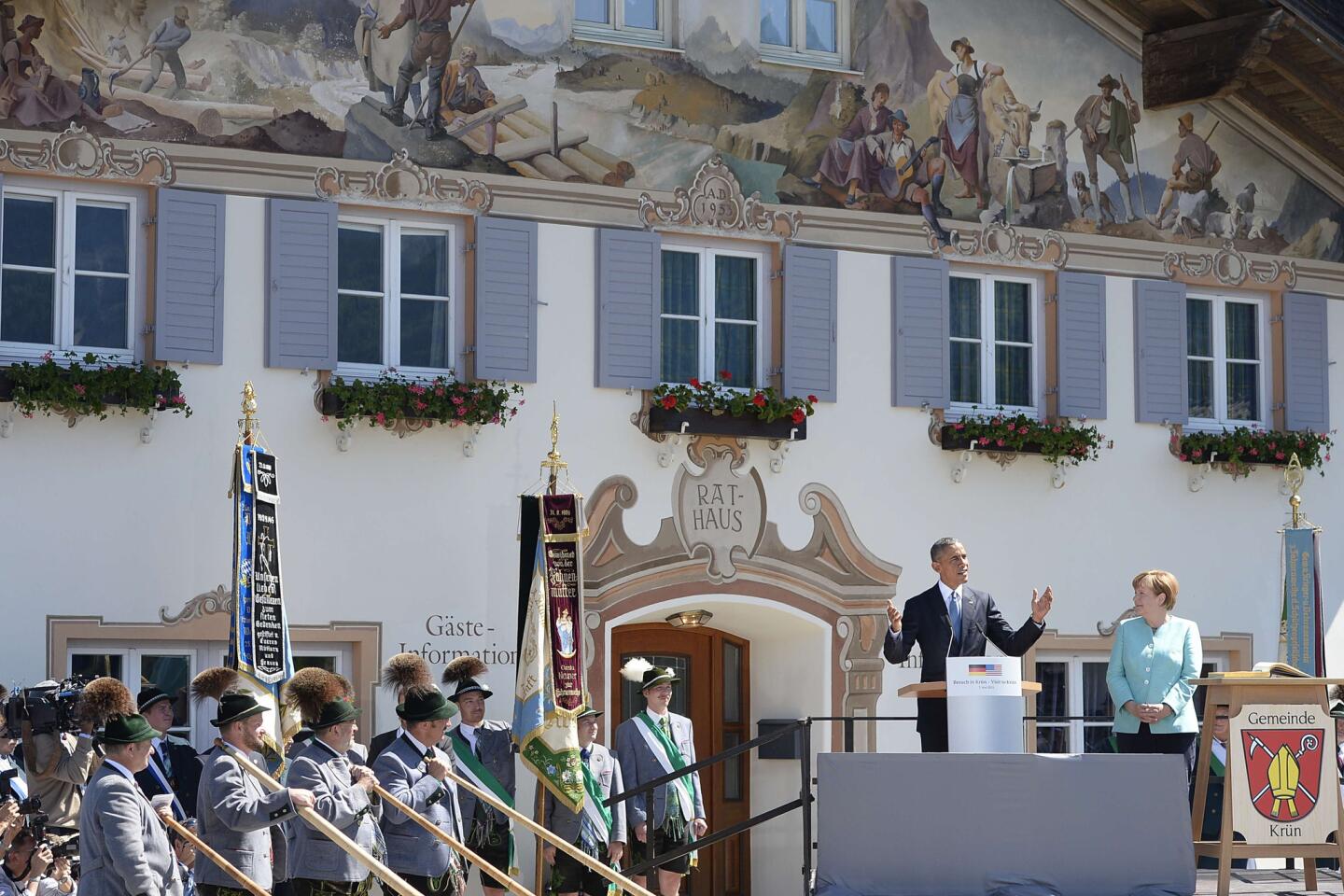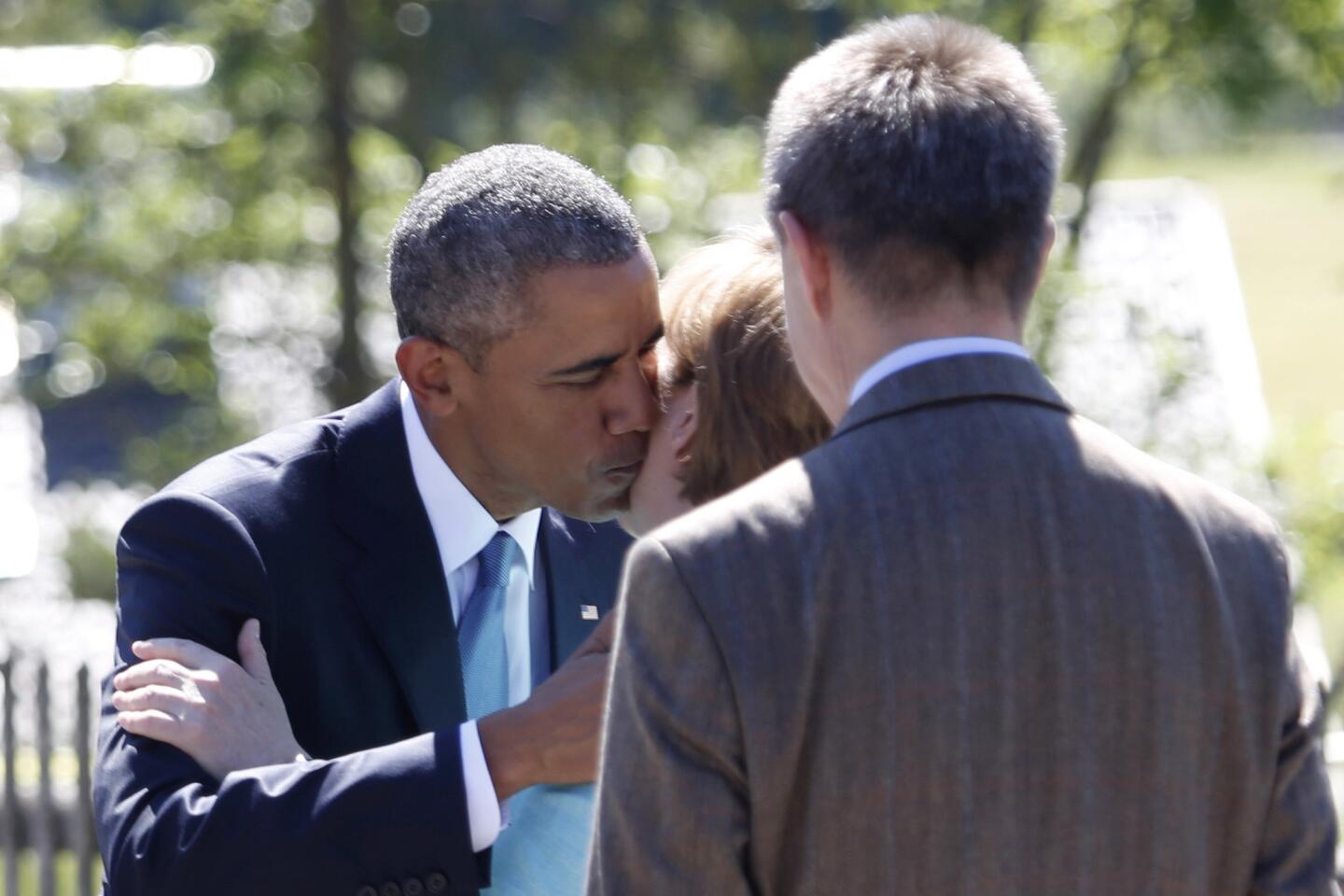At G-7 summit, Obama calls for tough stance against Russia
- Share via
Reporting from Kruen, Germany — As President Obama went into a summit of world leaders in the Alps on Sunday, he made a promise over beer and wurst with Bavarian villagers to take a tough stance against Russian intervention in neighboring territories.
One of his top priorities at the summit, he told hundreds of people in a town square in Kruen, is “standing up to Russian aggression in Ukraine.”
But gathering as the Group of Seven for the second time since the Kremlin annexed Ukraine’s Crimea region, the heads of government were focused more on holding their current line than in taking any new stands against Russian President Vladimir Putin, the disinvited guest of their annual summit.
British Prime Minister David Cameron called for sanctions against Russia to be renewed. European Council President Donald Tusk urged leaders to “re-confirm the G-7 unity” on sanctions.
And though Obama voiced his support for tougher sanctions, advisors to the president emphasized instead the importance of maintaining the status quo.
“Ultimately it will be up to the Europeans to make those decisions,” White House Press Secretary Josh Earnest said. “We’re hopeful that they’ll do so, keeping in mind our shared view that preserving this unity is really important.”
The current strategy is a “steady as she goes” approach, as another senior advisor to the president phrased it.
“I don’t see any change in policy on Ukraine, nor do I see Ukraine fatigue,” said Charles Kupchan, Obama’s senior director for European affairs. “We’ve always said that we favor and are pushing toward a diplomatic settlement to the crisis.”
In an interview with the Italian newspaper Corriere della Sera, Putin seemed to thumb his nose at the concerns of the U.S. and its European allies, saying that “only an insane person ... can imagine that Russia would suddenly attack NATO.”
The White House brushed off the comments, with Earnest insisting that the G-7 leaders only care about how Russian leaders have “essentially thumbed their nose” at cease-fire commitments in Ukraine.
“To the extent the President Putin’s name is raised,” Earnest said, it’s in that context.
Russia maintains that it has no direct involvement in the Ukrainian fighting.
Though the G-7 was originally formed to talk about economic issues, security concerns linger over all of its recent gatherings, especially since the expulsion of Russia from the ranks. The move was meant to isolate Putin and make clear the concerns of the member nations -- Canada, France, Germany, Italy, Japan, Britain and the U.S.
The current summit’s conversations unfold in the wake of intense battles between pro-Russia separatists and Ukrainian government forces, after both sides were reported last week to have raided heavy artillery stores supposedly under the guard of international monitors. Rebels holding two large regions of eastern Ukraine reportedly lost fighters in a battle for government-controlled Maryinka.
With the fighting intensifying in Ukraine, and fears rising about the violence in Iraq and Syria, any meeting of the G-7 allies and partners would naturally turn to shared values, said Heather Conley, a Europe specialist at the Center for Strategic and International Studies.
“When there is a crisis in the world, we lean toward our values community to impose sanctions, to really enforce and uphold the international system that [the G-7] largely created,” Conley said. “So over the last year it has made this more important. This trans-Atlantic cohesiveness is critical.”
During their Sunday sessions, Obama and German Chancellor Angela Merkel voiced support for full implementation of a Ukraine cease-fire plan that was forged in February but has been violated repeatedly.
One question left unanswered, though, is how long they will wait for Russia to comply, and what the international community will do in the meantime. Obama and Merkel discussed the future of international economic aid for Ukraine, but advisors did not signal changes on the horizon.
Merkel is against providing arms to the Ukrainian government out of concern that the weapons would only serve to inflame the war. Obama shares that concern, Earnest said.
Though the leaders didn’t toughen their positions on Russia, some said they hoped the unity behind those stands would add pressure.
“We would all prefer to see Russia at the table of the forum so that it can become the G-8 group,” Tusk told reporters in Bavaria. “But our group is a community of values, and that is why Russia is not with us today and will not be invited as long as it acts aggressively against Ukraine or other countries.”
Before an afternoon of meetings, Obama started his day with the visit to Kruen, where he drank a beer and spoke to a crowd of residents, many of them wearing dirndls or lederhosen.
The president joked that he forgot to pack his lederhosen but would look into buying a pair while he was in town.
He also told the crowd that peace can happen.
“The fact that all of us are here together today,” Obama said, “is proof that conflicts can end and great progress is possible.”
More to Read
Sign up for Essential California
The most important California stories and recommendations in your inbox every morning.
You may occasionally receive promotional content from the Los Angeles Times.


















